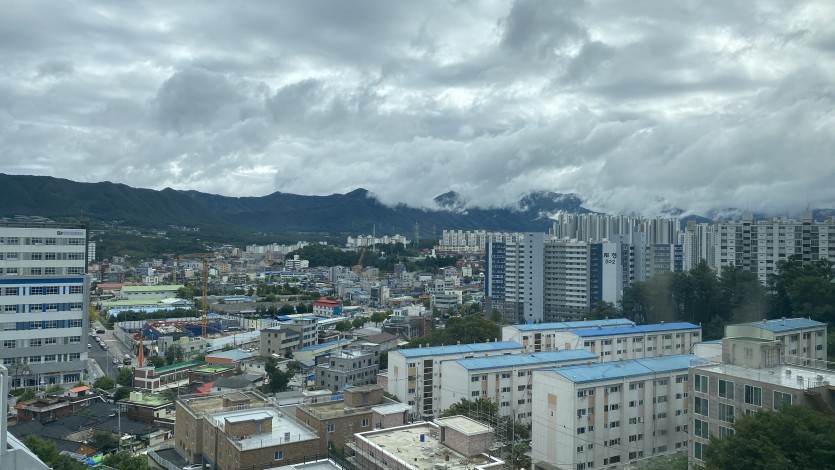Coping with Homesickness as a Graduate Student in South Korea
페이지 정보

본문
Hello everyone!
For this month’s story I would like to share my coping strategies as a graduate student in a foreign country. This is not the first time that I left the country for an extended period of time. My career in the Philippines provided me with opportunities to travel to different countries to attend conferences/workshops and give lectures and these opportunities usually required me to be away from home for months. I left my partner and my two children at home and though we usually talk with each other every chance we get through social media applications, it is still hard to talk to them about their lives in the Philippines, unlike when we were all living together and I was always updated with the things that they are doing. I was so grateful when they visited me last month because it made missing them bearable and I could not wait to see them again when I go home to the Philippines for the winter break.
I think my previous experiences of living in other countries is vastly different because this time, I was alone in a foreign country where I barely understand the language. I have previously lived in the United States and Singapore and for both countries I did not have to adjust as much because I understood the language and it was not very hard to communicate. Living in South Korea is a totally different experience. I have previously visited South Korea in 2017 to present a paper in Sungkonghoe University in Seoul, and I remembered that it was pretty easy to communicate because most people I interacted with were familiar with English. Now that I am spending most of my time in Chuncheon, I sometimes have trouble in communicating with other people even while using online translation applications like Google Translate and Papago. I noticed that it was harder to find people who understood English except in places near the University. I believe that this difficulty with the unfamiliar language makes it more challenging and enhances the general feelings of homesickness and craving for hearing familiar sounds and words. Awareness of the language in a new country is a critical factor for assimilation and socialization (Hack-Polay, 2012), and is a key contributor to feeling out of place in an unfamiliar location.
Another factor that largely contributed to my homesickness was the temperature. Having lived most of my life in the Philippines, where the average annual temperature is around 26°C or 78°F, it was a challenge adjusting to the significantly lower temperatures in Chuncheon. It was a challenge to dress up in layers so that I can be sufficiently warmed before I left the dormitory. Another exacerbating condition, I feel, is having to live in the dormitory. I never had the experience of living in the dormitory even when I was a college student, and having to adjust my daily routines to consider my roommate’s routines was also something new that I had to get used to.
Hack-Polay (2012) proposed coping strategies to deal with homesickness, including the use of social networks, integrating with a community or other expatriate groups, increased contacts with friends and family, and cultural exploration and discovery. I personally attest that these strategies have been working for me so far. My social network in Hallym University and South Korea in general have expanded over the past two months and I believe that spending time with fellow international students (and fellow Filipinos) have greatly reduced the feeling of homesickness. I am also in the process of learning the Korean language, primarily via online courses because the face-to-face language classes conflict with my graduate class schedules. Going to tourist spots and K-pop events also help a lot and I am actually beginning to enjoy my life in South Korea.
I am writing about homesickness because I believe that this is also a significant issue that begs further scrutiny. I believe that if international students like me can successfully cope in a new country, this will greatly improve our productivity and help us in our individual fields of practice.
Thank you and I hope you are all keeping safe and coping well!
Reference:
Hack-Polay, D. (2012). When home isn’t home: A study of homesickness and coping strategies among migrant workers and expatriates. International Journal of Psychological Studies, 4(3), 62-72. https://dx.doi.org/10.5539/ijps.v4n3p62
P.S. This photo shows the view I see everyday from my dormitory room window.
- Prev"Parasite" movie in reality 22.10.24
- NextWorld Mental Health Day 22.10.10
댓글목록
There are no registered comments.

